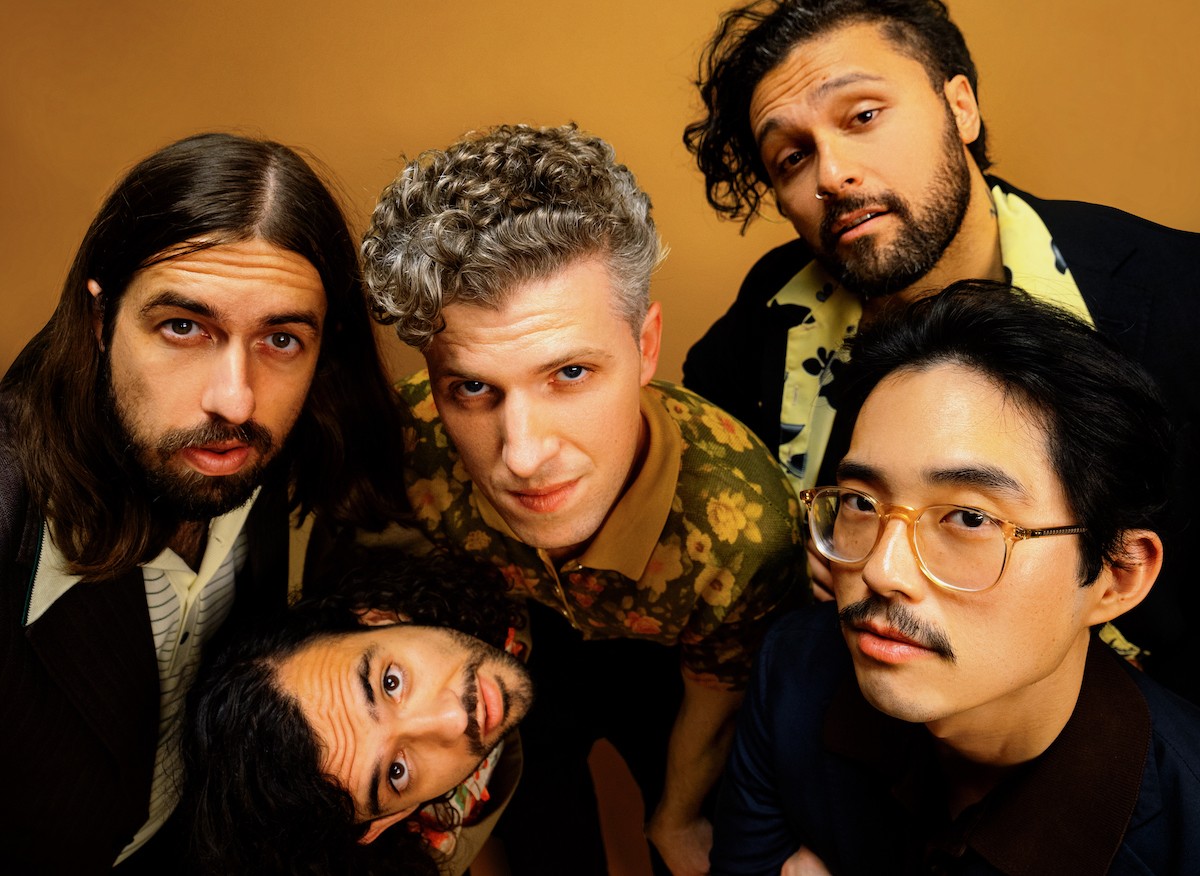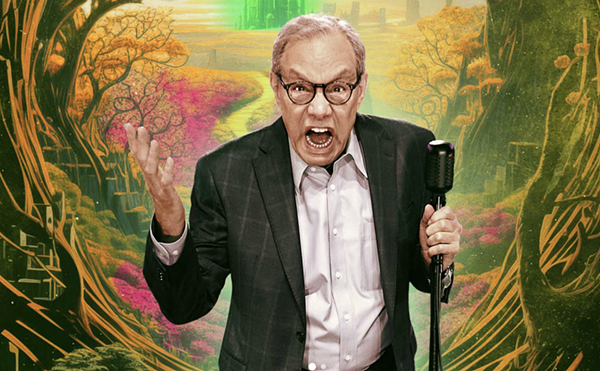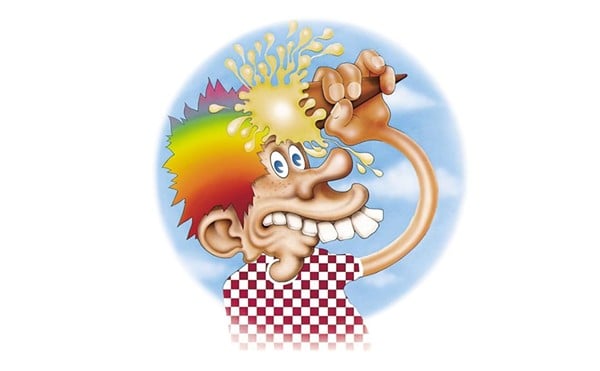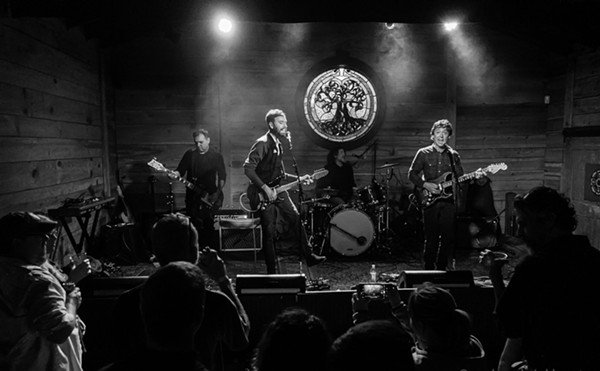Gang of Youths is coming to the Mercury Ballroom on Monday, April 25, bringing their brand of maximum beauty alt-rock to the local stage. The group, formed in Australia but with members from all over the globe, is touring in support of their third album, Angel in Realtime. The record was created to memorialize the complicated life of singer David Le’aupepe’s late father. LEO caught up with bassist Max Dunn, who was hanging out with his family in Singapore, to discuss the new record, kids, touring and creating moments of beauty.
LEO Weekly: Tell me about the new record.
Max Dunn: It took forever. It took like two and a half years and it was definitely the hardest thing we’ve ever done. It went up and down. We made many, many, many versions of some of the songs, and probably made the whole album twice — if you were to like aggregate it — in different studios and stuff. Then we kind of just realized we had to do it ourselves.
That’s when we got a room in Hackney, which is like just a random part out in London. We just went in every day — treated it, like, I mean, it was a pandemic, right. So we weren’t doing much else and, we just treated it like we were able to be a bubble because we hang out all the time, you know what I mean? We just became a bubble and went and did it. You were allowed to go to work, so technically we weren’t breaking the rules. Yeah.
Dave has this overarching vision. It’s his story, and he’s writing these songs, and then we kind of write music along with them and try to execute that vision.
I think it works ‘cause everyone sort of serves that, and everyone has their role. No one’s trying to be the Dave. It’s just kind of like everyone works towards that vision. What I mean by free, is there’s no instrument roles.
Everyone plays whatever, which I think kind of lended itself to this record because the album’s... it’s so random. It’s such, it’s such a departure from a standard rock record, and I mean, it’s always gonna — in my head — it’s always gonna feel like that ‘cause Dave’s voice is so engaging and compelling, in my opinion.
He could kind of sing over anything. We were trying to bring together minimalism and UK garage and we have amazing samples from the Pacific, recorded with a bunch of indigenous instrumentalists. Pacifica and Maori and New Zealand to go along with those samples. So the whole record is such, I don't wanna sound like a tool, but you know, it's such a tapestry of different things.
I think that free approach kind of helped. Beause you could try any crazy idea, which ended up kind of helping to glue something together.
How did having time influence how you created this record? The sound feels very full.
Maybe on some songs, but I think there’s other songs where we didn’t add a lot of layers, like ‘Forbearance,’ one of the tracks, which was very simply-produced. It’s really a couple of parts, and then probably the only layering would come with the drums. They’re trying to create that kind of breaky, hypnotic, drum and bass sort of bed.
And then obviously songs like ‘Brothers’ didn’t need anything or ‘Hand of God’ is just Dave on a piano. So I think the time probably helped, to go into depth and it probably allowed us to realize the album we wanted to make, if that makes sense.
[Chaos ensues momentarily as my dog, Martin — the interrupter of many an interview — starts barking when my son arrives with a friend... Dunn continues after quiet resumes.]
I guess the pushback to that is that we didn’t try to... we really wanted to make this album. I think the time helped because we made a lot of stuff that we didn’t like that would’ve been liked by people, if that makes sense.
There's that whole thing that you go with an album where you know what people expect of you, but then you realize it's not what you wanna make. So I think that gave us that time. But that all of those influences that are about layering like that new American classical music, which was a huge influence on the record. The whole point of that is to have layers and to build a texture through repetition and that's something that was an ambition that I think we'd had, particularly obviously David had and also Tom, who's an amazing orchestrator, had had for a long time to attempt that in the context of pop songs and a rock record.
I think time probably afforded us the ability to get there. Because we are not the sort of band that always knows exactly how we wanna sound when we get into a studio.
Usually with Dave, there's a really clear vision on what it's about, usually in name as well. Dave's incredibly, obviously gifted, but he's incredibly poetic. He'll have... on Go Farther in Lightness, I remember I'm telling me like a year before we recorded it, that he wanted to make an album called, Go Farther in Lightness. So he almost approaches it more like an author.
How important is it to create a record for maximum impact on listeners? You mentioned striving for “maximum beauty” in an interview with Atwood Magazine.
I think that’s like the entire point, and that’s not me saying what’s beautiful, you know.
I’m trying to think of a modern band, that’s like very different to us. I love Celebration Rock by the Japandroids, which is extremely aggressive punk. I think it’s extremely beautiful to what they were trying to do. We are always trying to think how we make people feel, what we want ‘em to feel or the song should have from feel.
With this record, it’s about a really complicated man, who I loved very much, and I knew very well, as well: Dave’s father, and his story. Then this kind of — in the context of what we are doing — what’s beautiful, was to like weave together a bunch of things and build motifs and take people on a bit of the journey with it, hoping to sort of mirror a journey that obviously his life was.
There was also this ambition to make it light, the way that he did. Even that, in itself, was a dedication to David's dad.
Been to Louisville before?
Uh, no. We have a friend from Louisville who makes guitar builds, and that’s pretty much the extent to which I know about Louisville, so I’m excited to come. It should be good. What should we expect? Did you say that it’s right on the border with Indiana?
Yep. We’re separated by a small river. Louisville is a deeply creative place and, of course, I’m also biased. OK, last question. Since we’ve talked about beauty and the pandemic: What good things would you like to see come out of this last two years?
[Dunn’s young child is waking up in the background.]
The obvious answer is that that people have the ability to stop more. I think a lot of people have been owned by their job and, probably to an extent, drawn identity from their job, including me. Not getting to tour or really make much money for two years from my job but getting to spend every day with my kid, which would not have happened. I feel like some of the lessons from sort of looking out for each other. I hope that that comes from the pandemic.
It'll be cool just hanging out with people. You know, like if I meet you at a show, being able to give you a hug, have a beer.
I do think there was a lot of beauty and things learned from it, and time's spent with family. One of my lessons personally is like, 'always see your family.'
I think when I get gaps now I'm just gonna go see my family. They didn't meet my boy for 14 months. I don't know. Just prioritizing people, I guess, which is obviously that's the only thing that matters. That's actually a line in the album so we can finish with that.
Keep Louisville interesting and support LEO Weekly by subscribing to our newsletter here. In return, you’ll receive news with an edge and the latest on where to eat, drink and hang out in Derby City.
Follow us on Facebook, Twitter and Instagram.







